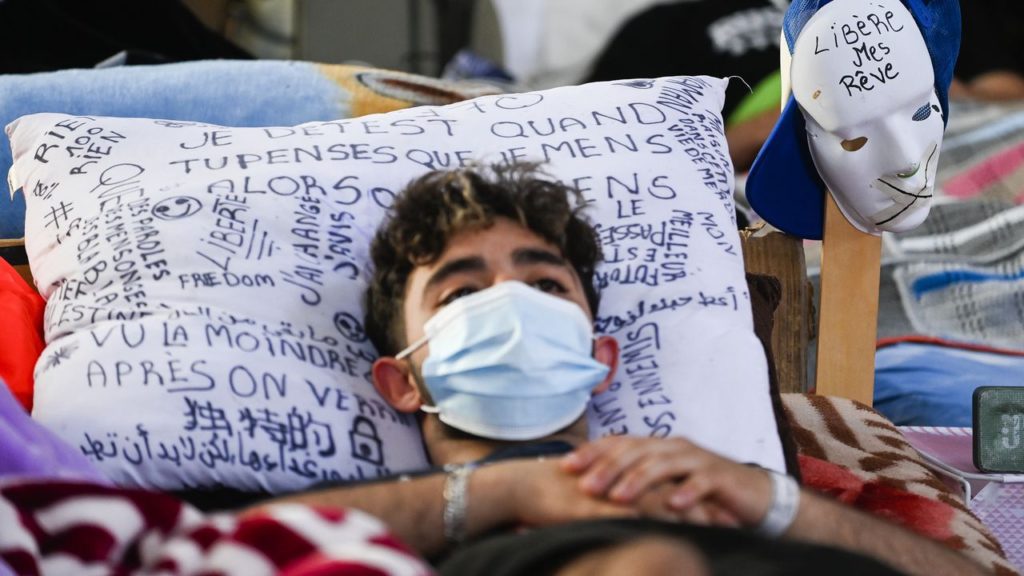A group of around 200 migrants who are on hunger strike in Brussels have entered the Beguinage church in the centre of town and closed the doors to all medical help.
The group of so-called ‘sans papiers’ – as they have been refused the documents needed to show they are accepted as asylum seekers – had previously been sleeping rough under a shelter on the Quai des Péniches on the edge of the Brussels canal.
They then moved to the Beguinage when the hunger strike began at the end of May. The church has regularly been a place of refuge for sans-papiers over the years.
When there appeared to be no solution to their plight, with asylum minister Sammy Mahdi (CD&V) refusing outright to consider a collective amnesty – they went on hunger strike to support their demands.
More recently, a number of them inflicted symbolic stitches on their lips to symbolise the strike.
The trigger for the latest action was a failed appeal to prime minister Alexander De Croo (Open VLD), who is firmly behind Mahdi’s position.
"They sent a letter to De Croo asking if he wants to mediate, but De Croo said he will not, and that Mahdi remains responsible. It is clearly an act of desperation on the part of the hunger strikers," explained Michel Genet, director of the Belgian arm of Doctors without Borders, told the VRT.
A week ago, a group of doctors and nurses from the Red Cross and Doctors without Borders visited another group of sans-papiers who are on hunger strike in the premises of the Free University of Brussels (VUB) in Ixelles. Some men there, too, had stitched their lips closed, but one man had to have the stitches urgently removed.
"You can't force-feed someone on a hunger strike, we have to respect their decision," said Rita Vanobberghen, a volunteer for Doctors without Borders, who follows a few of the hunger strikers.
“But if someone vomits and that vomit ends up in the lungs, that person could choke. Then we have to cut the stitches.”
"It's very paradoxical. We know what's going wrong, and the only really good treatment is to feed them, but we shouldn't force someone who is on a hunger strike in full consciousness to eat," said Thomas Giot, chief nurse of the Brussels Red Cross mobile team.
"We can only treat the complications. We are obliged to inform them of the danger they run. If it gets really serious, we suggest hospitalisation. Usually they accept it.”
Doctors without Borders, meanwhile, hopes to be able to get someone into the church in the course of the day.

